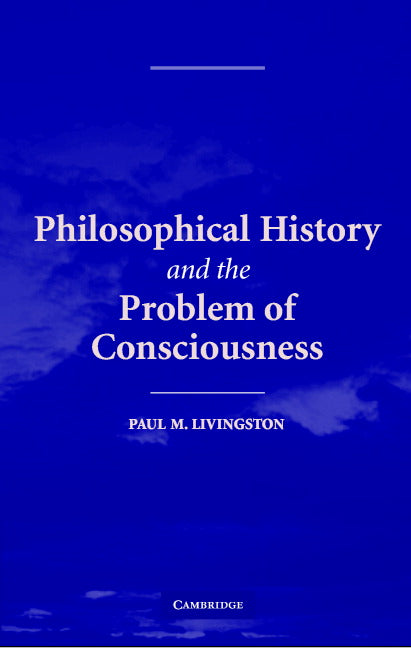Freshly Printed - allow 8 days lead
Couldn't load pickup availability
Philosophical History and the Problem of Consciousness
The problem of explaining consciousness remains a problem about the meaning of language.
Paul M. Livingston (Author)
9780521838207, Cambridge University Press
Hardback, published 26 July 2004
294 pages
23.5 x 16 x 2.6 cm, 0.6 kg
"It would be amiss not to commend Philosophical History and the Problem of Consciousness for its deft description of the details and differentiations of the various analytic theories of mind and its adroit articulation of the methodological and theoretical tenets of analytic accounts of consciousness." Majid Amini, Virginia State University
The problem of explaining consciousness remains a problem about the meaning of language: the ordinary language of consciousness in which we define and express our sensations, thoughts, dreams and memories. This book argues that the problem arises from a quest that has taken shape over the twentieth century, and that the analysis of history provides new resources for understanding and resolving it. Paul Livingston traces the development of the characteristic practices of analytic philosophy to problems about the relationship of experience to linguistic meaning, focusing on the theories of such philosophers as Carnap, Schlick, Neurath, Husserl, Ryle, Putnam, Fodor and Wittgenstein. Clearly written and avoiding technicalities, this book will be eagerly sought out by professionals and graduate students in philosophy and cognitive science.
1. Introduction: philosophical history and the problem of consciousness
2. Structuralism and content in the protocol sentence debate
3. Husserl and Schlick on the logical form of experience
4. Ryle on sensation and the origin of the identity theory
5. Functionalism and logical analysis
6. Consciousness, language, and the opening of philosophical critique.
Subject Areas: Cognitivism, cognitive theory [JMAQ], Philosophy of mind [HPM], Analytical philosophy & Logical Positivism [HPCF5]


